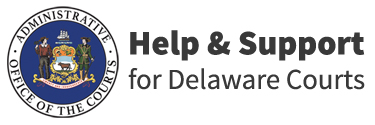Court of Common Pleas Tips on Going to Court
The court process can be very complicated. The decision to represent yourself in court is an important one. When making this decision you must be aware of the responsibilities you are undertaking. The Court will expect you to follow the same rules attorneys must follow. If at any point throughout the court process you are not sure about representing yourself, you should talk to an attorney.
To help you prepare for court, please review the following:
Bring the proper documentation
During your court trial or hearing, you or your attorney will have the opportunity to explain the facts of your case to the Judge or Commissioner. Make sure your paperwork is organized and that it supports your claim. Examples include receipts, contracts, letters, bills and photos. If you plan to enter your paperwork into evidence during your trial or hearing, bring 4 copies (1 original and 3 copies). You must give the Court the original, give one copy to the other side, keep one copy for yourself and have the third copy available should you decide to use it when questioning a witness. Bring a pencil and paper with you to take notes about your case.
Don't miss your court date
On the scheduled day of trial, you should appear at the time indicated on your “Notice to Appear” and check in with the Bailiff. Do not miss a court date without being excused by the Court or your lawyer in advance of your court date. For criminal cases, not appearing for court may result in the court issuing a capias or warrant for your arrest. If you are the plaintiff in a civil case and do not appear for court on your court date, your case may be dismissed. If you are the defendant in a civil case, a default judgment may be ordered if you fail to appear.
Allow plenty of time to travel to court
If you are driving to court, be sure to allow ample time for parking. In Wilmington, you should arrive even earlier because the courthouse is large and it may take additional time for you to report to the appropriate location.
Click here for directions to the Court in each county.
Click here to obtain DART public bus and train schedules.
Go to the correct courtroom
Make sure you know which court you must appear in. Once you arrive at the court building, consult the directory or information booth to find the correct courtroom.
Dress appropriately
While there is no written dress code for the courtrooms, certain attire is not considered suitable. This includes shorts, swimsuits, midriff and tank tops, and slippers. Non-prescription dark glasses must be removed once you enter the courtrooms. Do not wear a hat unless you do so for religious or medical reasons. Make sure what you wear is clean. You may also want to bring a light jacket or sweater in the summer months as the courthouses are air conditioned.
Proper conduct is also important
Smoking is not allowed in any public area of the court buildings. When court is in session, you should refrain from reading, talking, chewing gum, listening to personal radios, making distracting noises or any other inappropriate conduct. Food and beverages are prohibited in all courtrooms. Children are not permitted in the courtroom unless they are part of the case. In a situation where you have to bring a child to court, it is often best to leave the child outside the courtroom with a responsible adult.
Electronic Devices
For security reasons, all cellular telephones, camera phones or other personal communication devices (e.g. Blackberries, Sidekicks, pagers, PDA’s etc.) are not permitted in the New Castle County Courthouse, Kent County Courthouse or Sussex County Courthouse with the exception of the persons specifically enumerated below, or as otherwise permitted by order of the judicial officer before whom the particular case or proceeding is pending. Any device found in the possession of a person contrary to this policy may be subject to seizure and forfeiture.
EXEMPT PERSONS: The following shall be exempt from the prohibition against carrying a cellular telephone, camera phone, Blackberry or other personal communication device into the courthouses:
Judicial officers; court employees; state employees who are entering the courthouses on official business, attorneys who present a picture identification card and a valid Delaware Supreme Court issued membership card or proof of membership in another state’s Bar; persons who have regular business in the courthouses and who present a picture identification badge issued by the Capitol Police; persons with specific court function (building and maintenance tradesmen, equipment repairmen, vendors, etc.) may be permitted to retain their personal communication devices, upon a determination by the Capitol Police that they do not pose a security risk and the ability to access such devices is necessary for their work; and Local, State and Federal Law Enforcement Officers on official business and possessing proper credentials.
Court buildings have metal detectors at their entrances
The purpose of the metal detectors is to provide protection for the public and court personnel. Any object which could be classified as a weapon, including pocketknives, scissors, chains on a wallet, nail files, etc. cannot be brought into the building and will be confiscated by Capitol Police until you leave the building. Illegal weapons will be confiscated.
What happens at a court trial or hearing?
The court is a very traditional and polite place where a certain demeanor (way of acting) is expected. You must act and speak in a way that helps you with your case. For more information about what happens at a trial, please click here (Link to stages of a non-jury and jury trial.) Communication with the Judge or Commissioner should be carried out with a proper amount of respect. When speaking to the Judge or Commissioner, you must stand and address him/her as “Your Honor.” Act respectfully, courteously and politely to everyone in the courthouse. Do not talk at a trial or hearing unless it is your turn to speak. If it is not your turn to speak, sit quietly in the courtroom. Do not use profanity, argue, or verbally react to statements given in court by the Judge or Commissioner, opposing party, or attorney. When being asked a question, listen carefully. If you are not sure what is being asked, ask to have the question repeated or asked a different way. Talk directly only to the Judge or Commissioner unless you are answering questions or asking a witness questions. After the Judge or Commissioner hears your case and has reached a decision, make sure that you understand his/her decision. If you have any questions, ask the Judge or Commissioner before you leave the courtroom.
What can I do to make sure someone goes to the trial or hearing and/or brings a paper or thing that I want him/her to bring?
If you have any witnesses who can tell the court what they saw or heard concerning your case, you may wish to bring them with you. Make sure that they also dress appropriately. If you wish for the Court to send "notices" to the witnesses to appear, you must notify the Clerk’s Office at least twenty (20) days before trial. If you believe the witnesses may not appear, you may ask the Court to issue a "subpoena." The Court can also issue a subpoena for documents or other evidence that you may need for your defense and which is not in your possession. The request for subpoenas must be made with the Clerk’s Office no later than twenty (20) days before the date of trial. Failure to respond to a subpoena is grounds for arrest.
Legal Advice
Court staff cannot give you legal advice. If you have a question about what options you have or what you should do, you should talk to an attorney.
Can I Talk or Write to the Judge or Commissioner directly?
Judges and Commissioners may not permit or consider "ex parte communications" in deciding a case unless allowed by law.
An ex parte communication occurs when a party to a case, or someone involved with the case talks or writes to or otherwise communicates directly with the judge about the issues in the case without the other parties' knowledge. “Ex parte" is a Latin phrase meaning "on one side only; by or for one party." This ban helps Judges and Commissioners decide cases fairly since their decisions are based only on the evidence and arguments presented to the court and the applicable law. It also preserves public trust in the legal and court system.
What if I want to tell the Judge or Commissioner something about my case?
If you want to ask the Judge or Commissioner to take a certain action in your case, you should file a written motion with in the Clerk’s Office explaining the type of relief or action you are asking the court to grant you.
If you file a written motion, you must send a copy of your motion to every other party to your case (or the party's attorney) before you send it to the court. (This is called "service.") Make sure you attach the appropriate documentation showing that a copy of the motion was served on all the other parties and explaining how (e.g., by personal delivery, or mail, postage prepaid) and when service was made. Usually, the Judge or Commissioner will schedule a hearing on your motion. During the hearing on the motion, you will have the opportunity to explain your position in court. Judges and Commissioners must make their decisions based only on the relevant facts or issues of the case and the applicable laws. Therefore, please be sure that the facts or issues that you plan to tell the Judge or Commissioner are relevant to your case. This helps ensure that your case will proceed more quickly. Any letter or other correspondence sent directly to the Judge or Commissioner must be copied to every other party on your case (or the party's attorney, if the party has an attorney).


